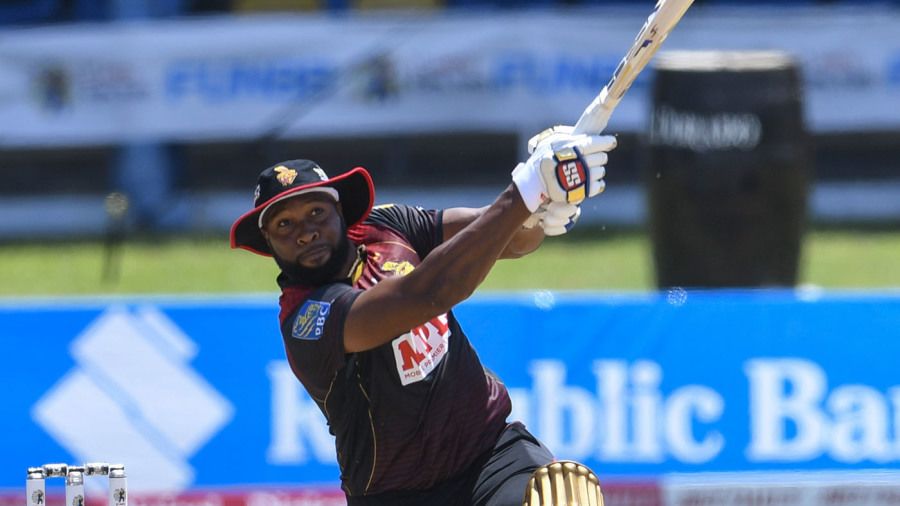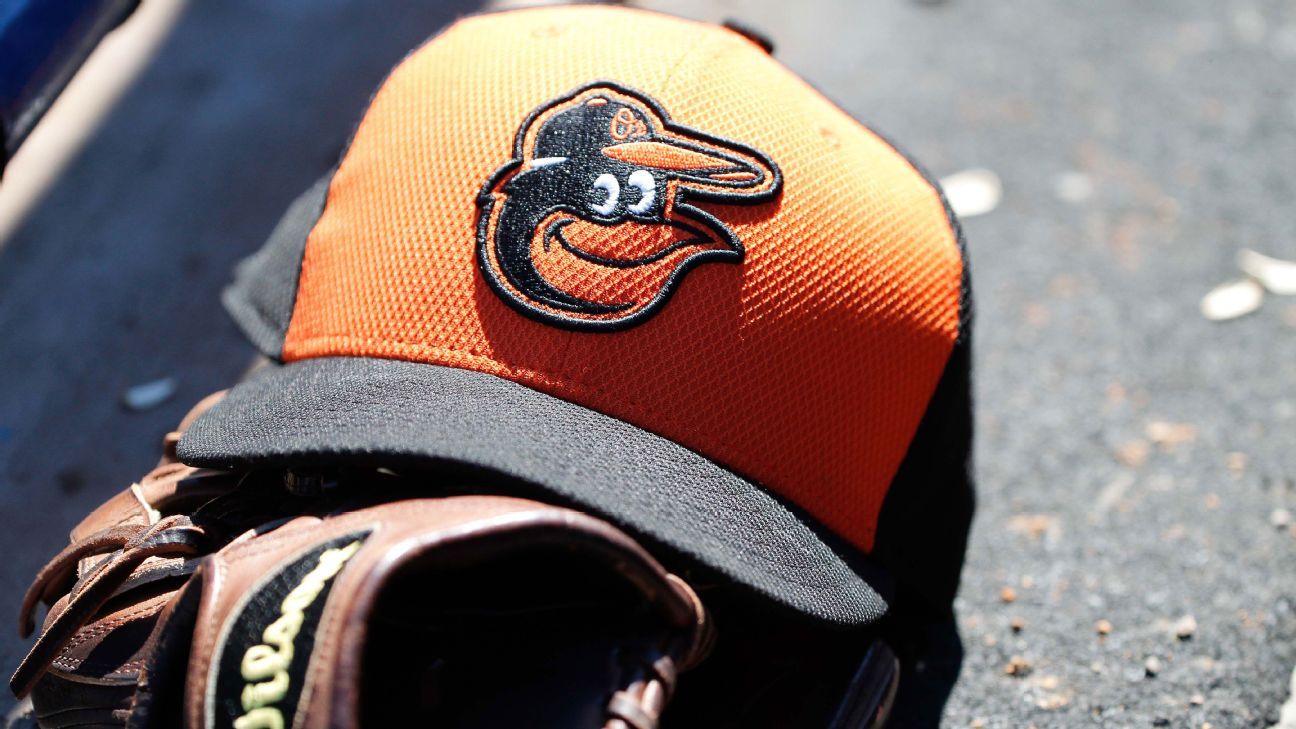
Trinbago Knight Riders 149 for 8 (Pollard 72, Simmons 32, Holder 2-27) beat Barbados Tridents 148 for 7 (Charles 47, Mayers 42, Raza 2-11. Seales 2-21, Hosein 2-30) by two wickets
T20 has evolved to the extent that teams now back themselves to chase two runs a ball over the last eight - or even last ten - overs of matches. Those sorts of chases, however, usually involve flat pitches and line-ups packed with hitting talent. On Saturday, Trinbago Knight Riders probably wouldn't have backed themselves when Kieron Pollard walked to the crease on a slow Queen's Park Oval pitch with 87 runs needed from 44 balls, and five wickets in hand.
This was a Knight Riders line-up that lacked Sunil Narine at the top and Dwayne Bravo in the middle. This was a pitch on which Lendl Simmons, the batsman at the other end when Pollard came in, had hit three sixes but no other boundaries while scoring 31 off 26 balls.
Simmons fell soon after Pollard came in, in the 15th over, for 32 off 29. That over, bowled by Mitchell Santner, and the 16th, bowled by Rashid Khan, brought the Knight Riders only six runs in total. That left them 66 to get off 24 balls.
Only a handful of players are capable of pulling off such a task, and Pollard has shown repeatedly - despite having been written off on multiple occasions - that he's one of them. This, given the modest support available to him from the other end, would be one of his best knocks if he could pull it off, and he did, laying waste to the Tridents' death bowlers as if he were a 16-year-old ringer in an Under-12s game, launching nine massive sixes in a 28-ball 72 to ensure the Knight Riders stretched their perfect start to the tournament into their sixth game. He made 72 off 28 balls. When Pollard was at the crease, the batsmen at the other end, plus extras, combined to score 7 off 12 balls.
Patriots' allrounders come to the fore
Before Pollard's innings, a different T20 game took place, and it would be prudent to note at the outset that Pollard played a key role in that game too. With Dwayne Bravo absent, he assumed the role of slower-ball specialist, mixing up his pace, changing his angles constantly - going over and around the wicket every alternate ball against the left-handers - sending down four overs - including the 16th and 20th of the Tridents' innings - and conceding only 27 runs.
That apart, though, the most influential performers were the Tridents' allrounders. They'd begun sluggishly with the bat, but Ashley Nurse, Rashid and Santner - spin bowlers primarily, but excellent hitters at the death too - clattered a combined 39 off 18 balls to give them a more than fighting total of 148.
Jason Holder, the Tridents' premier allrounder, had failed with the bat, but he got his short ball to behave unpredictably off the pitch and delivered a double-wicket maiden in the second over of the chase. Rashid then bowled a single-wicket maiden, and the Knight Riders ended their Powerplay 27 for 3. Santner, for his part, used his seam-up variation cleverly and kept forcing the batsmen to hit the ball where he wanted them to hit it.
Nurse had made an important contribution with the bat, but his one over went for 13, with Simmons launching two half-volleys for big sixes. When not handed freebies on a platter, though, Simmons struggled to score quickly, and with the rest of the top order utterly failing to get going, the Tridents were soon in a seemingly unassailable position. Seemingly.
Enter Pollard
Hayden Walsh, the Patriots' fourth spinner, was also having a pretty good game. When he dismissed Akeal Hosein in the 13th over, his figures read 2.4-0-12-1. Not bad at all. But his first ball to Pollard was a sign of what was to come. It may have been a pretty good wrong'un to most other batsmen, but Pollard's reach allows spinners only the smallest margin for error, and he slog-swept it for an emphatic first-ball six.
When the 17th over began, Pollard had only hit two sixes - the other a ridiculously effortless loft over long-off, off Rashid - in 13 balls. By the time it ended, he had hit four more. With each, Pollard made the young legspinner doubt himself a little more, and by the time the over ended he was firing in quickish darts with little spin on them. That isn't to say he would have held Pollard back if he'd bowled differently, of course.
The contest now took on an entirely different complexion, and the next over brought the Knight Riders the sort of luck a winning team often needs in T20. Sikandar Raza had sacrificed his wicket off the first ball, just to get Pollard on strike, but only two runs came off the next three balls as Raymon Reifer tied Pollard and Khary Pierre down with his left-arm angle and changes of pace. The fifth ball was a pretty good ball too, a slower bouncer, but a top-edge got Pollard four runs. Then came a leg-side swipe off a blockhole ball on the stumps - it was a bit of a miscue, off the inside half of the bat, but all that mattered was that it sped away for four. It also brought up Pollard's fifty, off 22 balls.
The Knight Riders needed 31 now, off 12 balls, and there was nothing fortuitous about Pollard's next two significant interventions. Holder had set a field for the wide yorker, and he got his line right and his length almost right - but almost isn't enough sometimes. He erred in both line and length next ball, and Pollard launched him for another big straight six.
There was still one final twist, of course. Pollard lifted the first ball of the final over beyond the long-on boundary to bring the equation down to 9 off 5, but was run out next ball, Holder firing in a spectacular throw - no bounce, straight into the keeper's gloves - from long-on, to catch him short of retaining the strike.
It could have gone either way, but the big error came from the bowler, Reifer, who sent down a wide and possibly high full-toss with 7 needed off 3. Pierre slashed it over point for six, and all but sealed a wildly improbable win.















 Phone: (800) 737. 6040
Phone: (800) 737. 6040 Fax: (800) 825 5558
Fax: (800) 825 5558 Website:
Website:  Email:
Email: 






